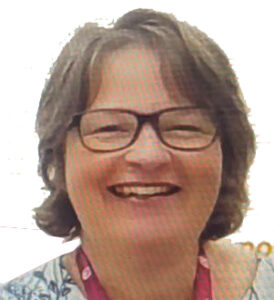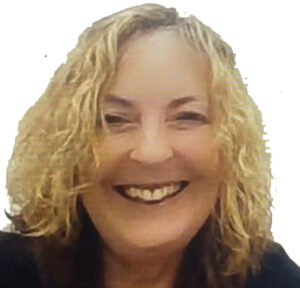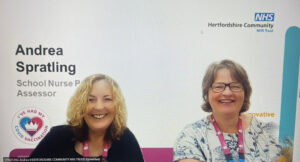Caring about Equality: Carers Week 2025
9 June 2025 | Fiona Rogers, QN
“Caring about Equality” is the theme of Carers Week 2025.
As Carers Champion at the QICN my role involves raising awareness of unpaid carers of all ages including sharing resources, for example published earlier this year and sharing innovative practice led by Queen’s Nurses.
Recently I met Queen’s Nurses Alice Maggs and Andrea Spratling, School Nurse Practice Assessors working at Hertfordshire Community NHS Trust https://www.hct.nhs.uk/ to ask about the exciting work they are leading with Young Carers.
What is the most rewarding part of working in the community?

Alice Maggs (AM): Supporting families and young people that are on child protection plans, and where there’s been a long term concern about, for example, neglect. We’re able to go in and do a health assessment and really get the voice of the child. And I feel that we’re in a really privileged role to have that access to the young person, especially as a nurse going in. we get a lot of honest answers and a lot of honest contacts with children and young people, which really makes a difference.

Andrea Spratling (AS): I mean, similar to what Alice has said, but I think definitely, where Alice mentioned about the voice of the child, I think that’s a really rewarding part of our job that we can kind of hear exactly how children feel and what their issues are for them and then feed that back, , might be to professionals or also even to their families. Sometimes they might not talk to their family, you know, how they’re feeling about things.
I think that what motivates me is knowing that I can make a difference and that I can liaise with the multidisciplinary team to make sure the voice of the child is always at the centre of what we're doing, whether that's safeguarding or whether it's general health advice.
Alice Maggs QNCan you tell me about a time when you made a difference to a young person with caring responsibilities?
AS: Only last week I went with one of my student nurses to see a young person in school. School had initially said they wanted the discussion to be around helping the young person to understand about autism because their sibling had autism. I went with a lot of resources around autism, but also some just general young carer resources, including our booklets. And when I got there, it unravelled really, and it wasn’t just about the sibling. There were a lot more issues. One of the things that was really pertinent to that young person was they were so worried that they might lose their mobile phone with contact numbers in there. And in an emergency, they wouldn’t know those mobile phone numbers. So, she’d been trying to memorize the numbers. When we got our booklet out and we wrote all the numbers in there for her, it was just a sense of relief. I’ve got that thing there and if my phone dies, I still have these people. So yeah, that made a big difference, I think.
AM: I think for me, I’ve had similar experiences as Andrea, but also thinking about the children and young people who are young carers but wouldn’t necessarily be thought of being young carers. They’re not doing the traditional things like having to vacuum, give a parent medicines, do the washing up and the cooking, but they’re actually the emotional support for the family. They might be having to adapt their behaviour in the family home. They’re not being able to shout, and you know, play as a child and have that robust play because they’ve got a child in the family who might be autistic or have ADHD that would be a trigger for them, or a parent that’s got post-traumatic stress or mental health issues.
Those young people we’re finding along the way as well. So really putting the net out wide, really, for young carers not thinking just about the traditional helping parents get dressed as a young carer.
What one piece of advice would you give other community nurses to identify and support young carers?
AM: Ask the question.
AS: Yeah, ask the question. Just be open and honest and just ask the right questions.
AM: I was just going to say, I’d also say think outside the box. Why aren’t they handing in homework? Why are they a little bit dishevelled sometimes, look at the whole picture? Were they acting up or behaving, badly at school or constantly wanting their phone or, there’s usually something behind that. And just think, think young carer, think young carer.
Why do you think many young carers aren’t recognized by nurses and other professionals?
AS: I think sometimes staff in particular don’t feel confident. They don’t think they really understand about young carers, and they don’t feel confident asking, particularly in primary school because you know those children aren’t going to come forward off their own back. You’re going to have to ask questions and do a bit of digging. So, we have some useful tools on our website that we’ve designed to do that Young carers | Hertfordshire Community NHS Trust We’ve got a general letter that goes home to all parents of primary school age saying, please come forward. You know, if you’re in this situation and you think you might have a young carer in your family. And then we’ve made a little checklist for teachers to use with children and, you know, to see if there are any issues or anything that they need support with.
Community nursing can be challenging at times; what motivates and inspires you?
AS: We went to a Carers Trust webinar Supporting Younger Young Carers, and for me, I think it’s seeing all of the work that’s going on and all the different resources that are out there. We came out of that call thinking we must have a look at this resource and see how we can incorporate some of that stuff into what we’re doing. So yeah, just being around like-minded people that have got have an interest and sharing, sharing resources, that’s what motivates me.
AM: I think that what motivates me is knowing that I can make a difference and that I can liaise with the multidisciplinary team to make sure the voice of the child is always at the centre of what we’re doing, whether that’s safeguarding or whether it’s general health advice. You obviously need parents on board to support children and young people, but some children don’t have that advocate and I see that very much as part of the school nursing role and that inspires me.
AS: The other thing I really love is some co-production with some of the young people. That’s fun to do and I think it makes, it brings the point across more if you’ve got young people involved in what you’re doing.
AM: That’s inspirational, actually, being part of the Queen’s Institute of Community Nursing and having access to the support that you offer and obviously our project, we did our innovation project with you guys. So, we’ve learned a lot through working with yourselves and having that experience. Oh, Joanna’s help with our resources, she was amazing.
Work to do
Alice and Andrea had a 3rd Year Children’s Student Nurse, Anika and a SCPHN School Nurse student Zoe present who were given the opportunity to be part of the conversation too. They found the work inspirational but sadly shared that within their Children’s Nurse or School Nurse training to date, young carers had not been mentioned in their courses or any of their placements. They felt Young Carers should be within their curriculum. Work to do!
If you want to know more about Young Carers and how you can support the call for an equal society where all carers of all ages are valued, recognised and supported check out:
- Supporting Carers – The Queen’s Institute of Community Nursing
- Young Carers Alliance – Carers Trust
- Young carers | Hertfordshire Community NHS Trust


 Back to Blog
Back to Blog